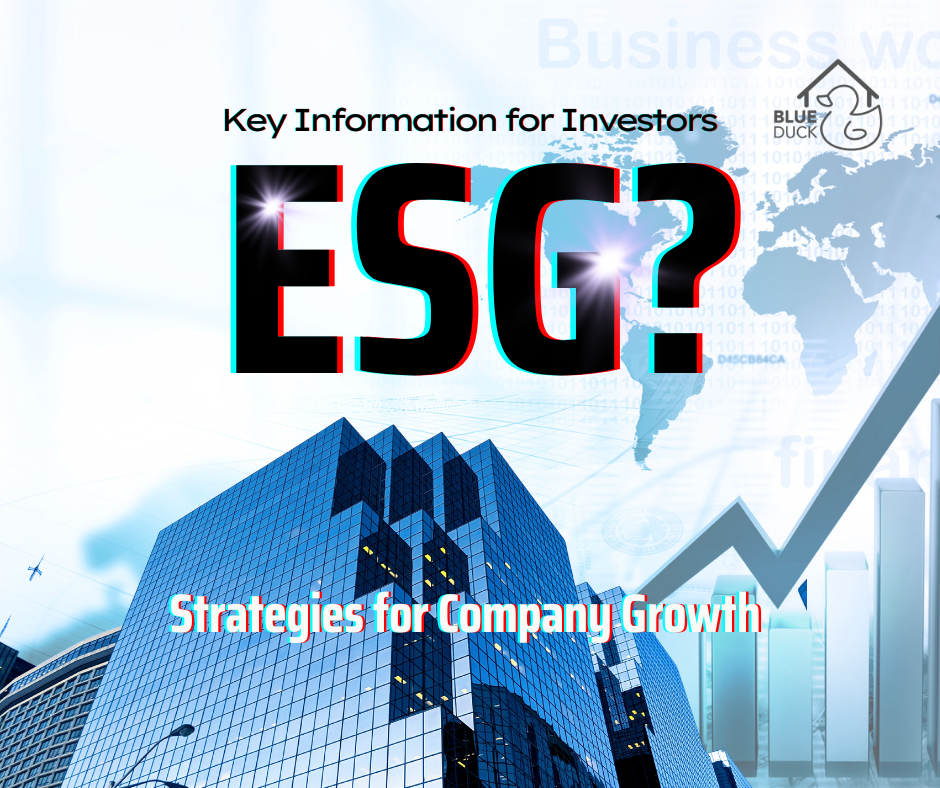Navigating the New Era of Investing: ESG
Posted on
In the past, investors only cared about making money and didn't think much about how companies were making that money. But now, more investors want to know if their money is being used in a way that is good for the environment, society, and the way a company is managed. This has led to the rise of "ethical investing," where people try to invest in companies that are doing good things for the world.
ESG is a way for investors to evaluate how well companies are doing in terms of taking care of the environment, treating their employees and society fairly, and having good leadership and management practices. Investors who care about these things use ESG as a guide to finding companies that are responsible and sustainable.

So, what is ESG?
‘E’ stand for ENVIRONMENTAL
The environmental criteria for each industry are unique and depend on various factors such as the company's operations, production processes, and regulatory requirements.

Climate change will impact every aspect of our lives, and companies that prioritize ESG factors, particularly in relation to climate change, will thrive. Natural disasters caused by climate change pose financial risks, so resource management and waste reduction are crucial for long-term success.
‘S’ stand for SOCIAL
The performance and reputation of a company are shaped by its social interactions with various stakeholders, such as staff, suppliers, and customers. These interactions occur within the broader context of society, and are influenced by demographic factors as well as the company's reputation.

When assessing a company's ESG performance, it's important to evaluate how they treat employees and suppliers. Fair treatment, equal pay, and safe working conditions are crucial. Mistreatment can lead to staff retention problems and regulatory issues. These principles should be extended to suppliers, especially those in regions with poor working conditions.
‘G’ stand for GOVERNANCE
The governance aspect of the ESG assessment evaluates how a company is managed and makes decisions, including the establishment and operation of its board of directors, risk management practices, and shareholder rights. This aspect of the assessment encompasses a wide range of factors that can impact a company's long-term success and sustainability.

Companies prioritizing strong governance practices are likely to have a diverse board of directors and effective risk management practices, avoiding costly legal and regulatory issues while maintaining customer and investor trust.
In conclusion, ESG criteria can help investors avoid blowups caused by risky or unethical practices, as seen in the examples of BP and Volkswagen. Investment firms are increasingly tracking ESG performance, but the ultimate value of ESG investing will depend on whether it encourages real change or merely box-checking. This will depend on whether ESG tenets are realistic, measurable, and actionable.